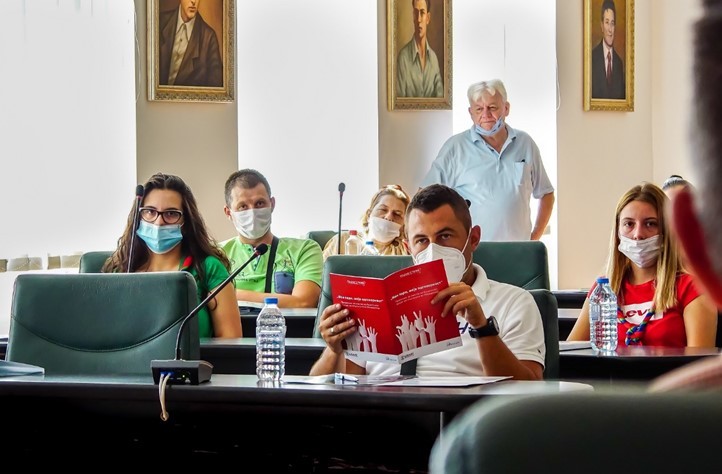Speeches Shim

A NETWORK OF LEADING CSOS SETS AN EXAMPLE FOR CIVIC ENGAGEMENT
Active citizens are at the core of a vibrant democracy. Democratic engagement starts at the local level. With USAID’s support, municipal authorities are directly engaging with citizens in decision-making processes, starting with the development of local budgets. While seemingly tedious, citizen input into the budget process yields direct benefits to communities, giving each citizen a voice in community-level improvements while building trust between citizens and their local government. Holding town hall meetings during municipal budget development is one of the main ways municipal officials are incorporating citizen input in a meaningful way.
During the last three years, USAID’s sub-grantee, the Fiscal Accountability, Sustainability, and Transparency Network (FISCAST), has been helping eight municipalities in North Macedonia increase citizen participation in the local budgeting process. FISCAST organized a series of townhall meetings, public lectures, and regional forums with 1,200 community representatives. They established 11 info corners in partner municipalities and produced numerous infographics and educational videos on participatory budgeting that reached over 500,000 followers on social media.
As a result of the townhall meetings, citizens proposed projects and ideas that were incorporated into municipal budgets. Over 99 citizen-proposed projects made their way into the 2020 municipal budgets, leveraging 45 percent of available funding. This exercise created a new path for developing future municipal budgets, a path which better prioritizes the needs and demands of local communities. This has improved citizen confidence and faith in local authorities and forged a new level of trust between citizens and their local representatives.
Construction and renovation of local streets; building a collector system; improving waste disposal; helping the homeless, impoverished, and minority populations; building a kindergarten and sports facilities; and improving the city’s greenery are just some of the examples of improvements funded through the participatory budgeting processes in the eight municipalities.
“Before we started to work with citizens in these municipalities on their participation in the ways municipal budgets are spent and how they can contribute with their voice in this process, the situation was different. Citizens told us that municipal budgets were tailored “behind closed doors”, while municipal authorities stated that citizens do not want to participate in this process. Now, three years later, the number of municipalities hosting public discussions as codified in their municipal statutes is continuously growing,” said Blagica Petreski, FISCAST’s Project Coordinator, at the closeout event organized in September 2020 for their “My Money, My Responsibility”: Participatory Budgeting in the Municipalities in North Macedonia initiative.
FISCAST’s initiative was funded by USAID through the Civic Engagement Project, a five-year activity initiated in August 2016 to strengthen the dialogue between citizens and the government on policies and issues targeting anti-corruption, transparency, rule of law, and youth engagement in public life in North Macedonia.

Comment
Make a general inquiry or suggest an improvement.